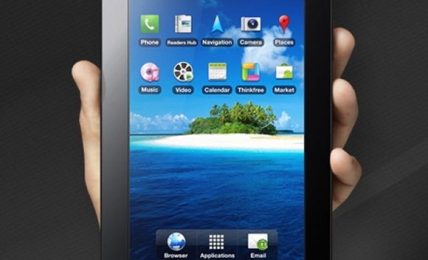As a small business sets up shop, one of the many preoccupations on the owner’s mind is likely what technology should be implemented on an everyday basis. While traditional small businesses have gone the way of the cash register and basic point-of-sale (POS) technology; the new wave of small business, including those that are just starting out or revamping established operations, have begun to adopt more modern ways of doing business.
E-Commerce and Other Technology
 The more modern type of small business is the first to implement new commerce technology, such as Square. Square is a tiny square-shaped card reader that can attach to an Android, iPhone, or iPad, allowing businesses to accept payment anywhere on the fly. New forms of payment, like Square, allow businesses to accept payment for their goods or services with less hardware and more efficiency in their operations. It remains to be seen whether it becomes a staple with businesses doing commerce, but it is definitely a step up from the old fashion cash register.
The more modern type of small business is the first to implement new commerce technology, such as Square. Square is a tiny square-shaped card reader that can attach to an Android, iPhone, or iPad, allowing businesses to accept payment anywhere on the fly. New forms of payment, like Square, allow businesses to accept payment for their goods or services with less hardware and more efficiency in their operations. It remains to be seen whether it becomes a staple with businesses doing commerce, but it is definitely a step up from the old fashion cash register.
Other payment options, such as PayPal’s merchant services, are great for businesses that use e-commerce. PayPal’s services make it easy to create invoices and keep track of payments online; which is certainly relevant in modern business and can likely improve businesses that have yet to go digital with their accounting practices.
Another piece of technology that is being used with startup businesses looking to stake a spot on the cusp of modern technology is WordPress. Not only does a website creation platform like WordPress provide small businesses the opportunity to perfect their website and its content, but it also provides integration with payment services like PayPal.
As appealing as such technology may seem, some small businesses stray away from new advancements in commerce. A lot of times, that means losing out on capability and even cost-savings. Companies that choose to host their website on a local server aren’t making the most efficient use of their resources. Instead of hosting locally, they should look into cloud computing, which will let them expand as needed without being stuck with a bunch of servers they may or may not even need. Some companies can even help owners set up virtual private servers to let companies run their own servers and have complete flexibility.
Brick and Mortar or Updated Technology
While some brick and mortar businesses are undoubtedly on the cusp of the latest small business technology, many end up sticking to the traditional forms of commerce, typically involving cash registers, checks and the frequent use of cash.
The other day I visited a local burrito shop. Although it was my first time, the restaurant had already garnished a reputation in town as having “amazing” burritos. As enticed as I was, I made my order and found myself in an odd and almost unimaginable situation for the current day and age. The burrito shop only accepted cash, of which I had none. Not only was this small, yet very popular restaurant using technology that was generally considered outdated, like a cash register, they weren’t even using basic technology to accept debit and credit cards.
Walked out and found somewhere else to eat that accepts debit/credit, or gone around back and used the ATM so you could finally taste what everyone in town has been talking about?
As you may have guessed, I chose option B. I went around back, used the ATM and bought the highly acclaimed burrito. Was it worth the $2.00 third party ATM surcharge? Not really. Was it as good as every in town was making it out to me? Sure, but it would have tasted just a bit better if they would have accepted my card at the counter.
Be modern when it counts
Even brick and mortar shops, like the burrito place, have the potential to increase customer traffic, revenue and profits wit
What’s more, businesses that use technology like Square to accept payments on the go, PayPal to manage e-commerce, and WordPress to create web pages, have a higher opportunity to succeed and thrive as a modern small business. This is especially true for those small businesses that do not already have a successful standing in their community as a hot spot brick and mortar business. Regardless of the status of a business, technology has the potential to both, take established brick and mortar businesses to the next level, and to solidify new startups in the often times, ruthless business world that small businesses have to compete with in this technology driven era.h updated technology like the aforementioned use of Square, and even e-commerce solutions like PayPal. How much can technology increase the profit potential of small businesses is somewhat uncertain, but one thing is for sure, the integration of technology and business will not likely decrease moving into the future.






